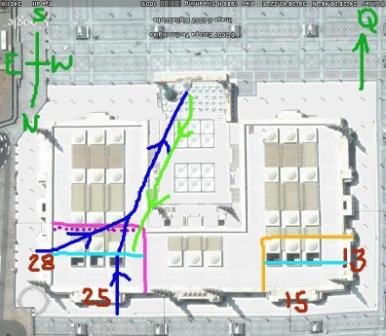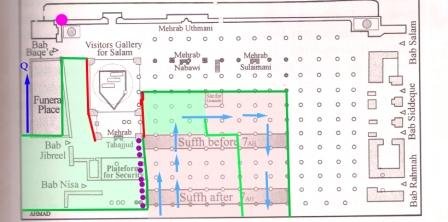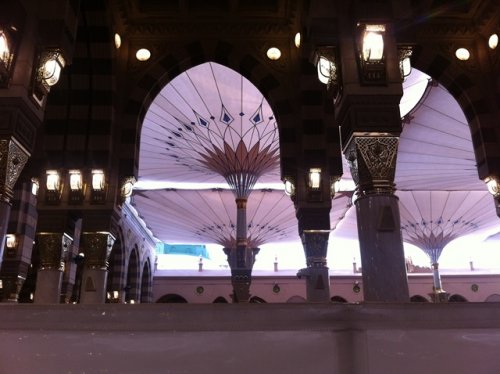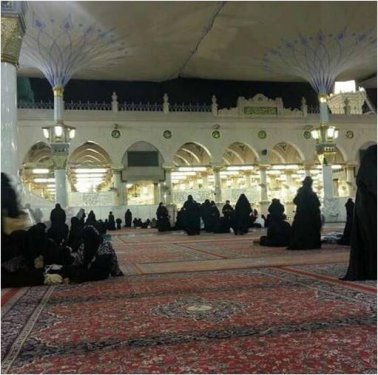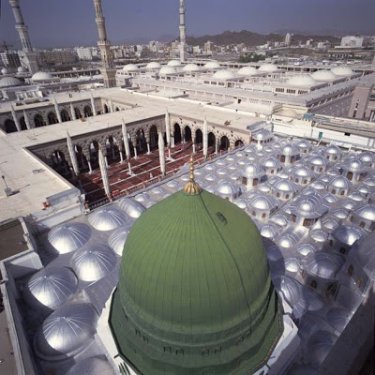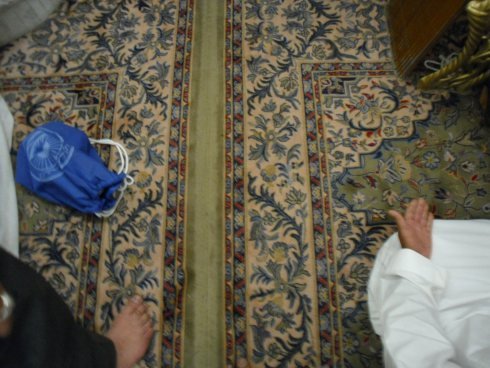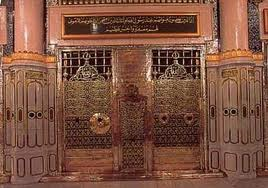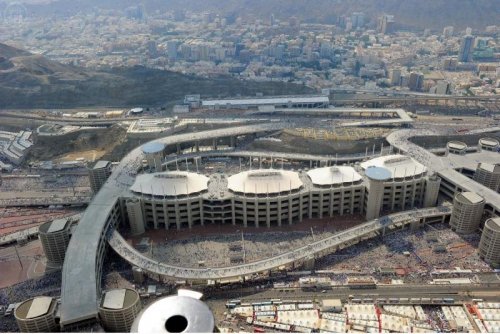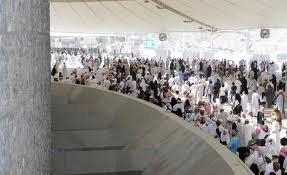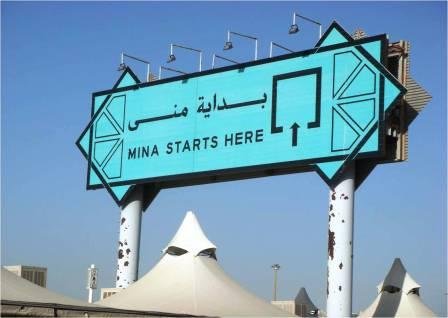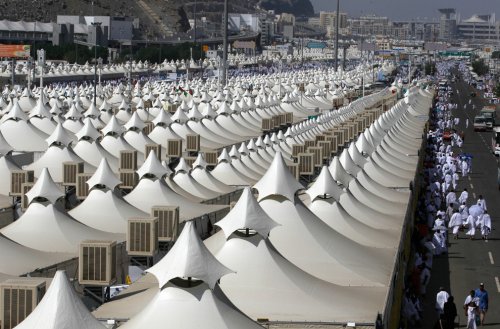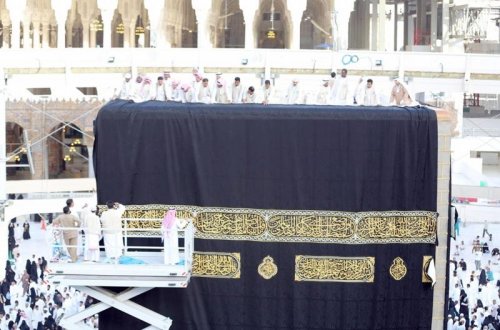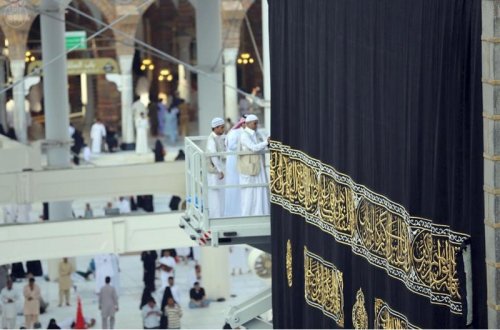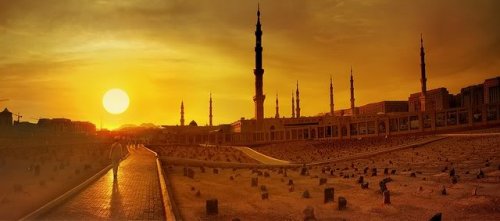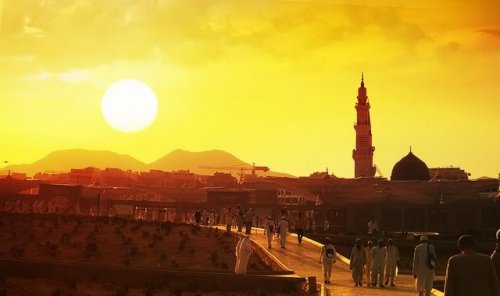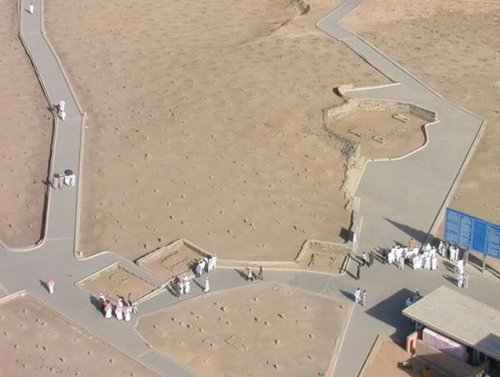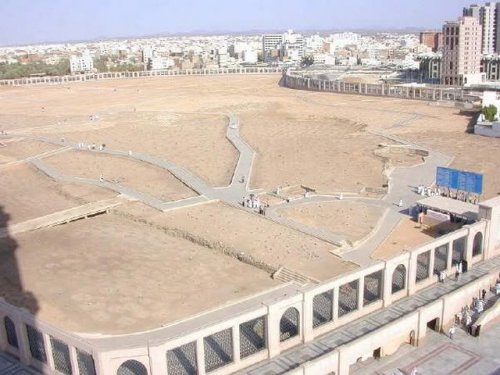-
Posts
8,466 -
Joined
-
Days Won
773
Content Type
Profiles
Forums
Events
Everything posted by ummtaalib
-
The following is very helpful information from Al-Miskeenah (Click on picture to enlarge) This post is in response to Sister Shahida’s inquiry about the conditions of Ziyarah for sisters when visiting our Blessed Al-Mustafa SallAllahu alaihi wasallam in this Luminous City of Light and Radiance. Information is not only relevant for sisters but also for brothers to understand, as many visit with their female family members who need the basic information on where and when to go. Sisters often arrive at the wrong section assuming they can access the Rowdha Shareef from there, or some arrive towards the end of visiting times and are prevented from entering. In some cases some miss visiting altogether due to not knowing the routine. Also, the conditions vary according to the time of the year, between the few months when there are no Umrah visa issued, the low and the peak Umrah seasons culminating in Ramadhan and Hajj. There are only two prayer areas for sisters; the north western corner (orange line) accessed through doors 13-15, and the north eastern corner (pink line) through doors 25-28. In both sections the areas on the Qiblah side of the light blue lines are for sisters without children with a barrier separating the area for sisters with children. Security sisters are positioned at the openings of this barrier ensuring this rule is abided by. However during the busy times of Hajj and Ramadhan this division usually does not apply as the number of children at these times is far less. Access to Rowdha Shareef for sisters is ONLY through the eastern section, by following the blue path. The sisters prayer area is separated from the men’s area by a tall finely decorated “mashrabiyah”, the traditional wooden Arabic screen, which allows air to still circulate, but limits visibility either way. The purple dotted line indicates where the huge doorways are for gaining entrance to the Rowdha Shareef. These are only opened during the Ziyarah times for sisters. The main session being after Ishraq until approximately 10.30am, but it is advisable to arrive by 10am the latest as the entry doors will be shut, even though sisters will still be inside the visiting area. During the crowded seasons it is best to remain in the Masjid from after Fajr Salat making your way to as near to the mashrabiyah (purple dots) as possible. The wait may be an hour or so as brothers need to be vacated from the area allocated for sisters and the white canvas fence to be erected. This demarcates the pathway to be followed to reach the visiting area and the greater men’s section of the Masjid, brothers are still able to access the Masjid and cross the sisters’ pathway during their visiting times. The actual position of this barrier tends to change, especially in and immediately around the Rowdha Shareef area, maybe according to the numbers, maybe trying various configurations, as the whole arrangement is far from satisfactory. The second time for sisters’ ziyarah is after Salatul Zuhur. This session is only very short compared to the morning session so once again wait at the mashrabiyah soon after Salat has finished. During peak times they have tried to implement a one way system….the lime green line represents the exit pathway, which is a separate fenced area. Many do not realize this and leave their shoes in shelves on their way into the Rowdha Shareef, and then find they have to walk all the way back to the main sisters area to enter the way in again. Shoes and bags can be a hindrance in the crowds, and yet leaving them somewhere also can cause distress in locating them again, and the issue of “lost” shoes has also become rife! I always recommend you come with a shoe bag….one that has a strap that is across the chest so your hands are free. The other “feature” employed when the crowds are great is the marshalling into groups according to nationality. Various “security” guards are given placards on sticks with the name of the main different countries on them…they stand in certain places on a chair waving these placards for the sisters to assemble around them. They are given a lecture on the Adab of Ziarah and can be “held” in these holding areas for ages. I have seen physical fights with this arrangement, and there are many cases of broken bones and sisters taken to hospital! Another aspect of trying to organize the crowds is the use of megaphones! Yes….megaphones in the Masjid, as well as under the umbrella area, so close to our Beloved Rasulullah SallAllahu alaihi wasallam! And then there is the moving canvas tactic! Two “security” guard sisters hold a piece of canvas about one meter wide and five long…they “wrap” this around a group of sisters….and “pull” them into place! And during Ramadhan and Hajj , this holding place is literally a fenced in area positioned in front of one of the doors of the mashrabiyah. Once it is full it is shut. Sisters have to wait in these pens until space is made available under the umbrella area. If all this sounds like a disgrace it is because it is! It is a shambles. The emotions are high. Thousands of sisters have come to pay their respects, to give their Salam, some having waited decades for this opportunity. Many just sit and cry, Many are too weak or incapacitated to sustain this treatment. Hundreds resign themselves to never making it to the Rowdha area and convey their Salam from the back of the Masjid, or from the other sisters prayer area where it is calm and quiet. (Click on picture to enlarge) This is a detail of the visiting area. The smaller green section is the green carpet area of Rowdha Shareef available for the sisters. The darker green lines represent the fence that is erected prior to our visiting times. The blue arrows indicate the direction one is to follow, the central green line is the fence separating the going in area to the exit area. It is almost impossible to offer two Raka’ts now, the crowds being too dense, and the "security" guards are on high stools yelling directions, and madly gesturing the whole time. At no time are sisters in the area where the Mihrab or the Minbar are, and as can be seen the closest we can be to our Beloved Prophet SallAllahu alaihi wasallam is at the far end of what was the house of our Lady Aishah RadhiAllahu anha. The line of purple dots indicate where the barrier is erected when it is high season, which is the majority of the year now, other times sisters can enter into this larger green area to be near the place of Tahujjud, to have access to the raised platform, which some narrations say was the Suffah, others as written on this diagram. The narrow area is most sought after to offer Salam as it it as the Mubarak feet of our Beloved Prophet SallAllahu alaihi wasallam and those of his blessed companions, Abu Bakr and Umar RadhiAllahu alahi wasallam. The red lines represent what are like wooden counters, reaching about waist high that are placed there during the sisters visits, the "security" guard ladies walk up and down this narrow area looking for "bida’h" and soon pounce on any one they feel is facing the "wrong" way or reading the "wrong" book of Du’a. From this area you can look ahead to the corner of Bab Baqi, and the Qiblah wall….the pink dot indicates where we have been told, is one of the places where Jibreel Alaihis Sallam would come when visiting Rasulullah SallAllahu alaihi wasallam. Brothers can see this as a small wire grill with a beautiful flower design on it, and sisters fortunate enough to be here during the off season can see this, as well as use Bab Jibreel and Bab An-Nissa’. It is not that long ago when sisters could enter and exit from this side of the Masjid for Ziyarah, but for some reason we no longer can access this side. It makes it a very long walk for those staying, or living on the southern side, as you have to walk to the back of the Masjid and then all the way to the front again to be in the visiting area. “A group of Angels travel throughout the earth to convey greetings of my Ummah to me.” How blessed we are that these Angels are not confined to only those who are blessed to be in the immediate vicinity of our blessed Prophet SallAllahu alaihi wasallam. Alhumdulillah. By saying one Durood as you read this, wherever you happen to be on the face of the earth, an Angel will immediately carry this to our Beloved Prophet SallAllahu alaihi wasallam as he rests under the splendid Dome of Felicity. Alhumdulillah! And this is for everyday….EXCEPT Yaumul Juma’ah….when, wherever you are Al-Mustafa SallAllahu alaihi wasallam hears your greetings himself! SubhanAllah!
-
Exit from the Rowdhah Mubarak Leaving the area can be just as chaotic if one stays till the end of the visiting time! Quick picture taken by Sister Miskeenah on the way out of the Rowdhah Mubarak Taken from Here with more detailed info on Sisters' Visiting the Rowdhah Mubarak
-
The descriptions in the previous post is no exaggeration! From the experiences of many sisters, it can be worse! Patience at this time would be a great virtue and for the patient, Allah subhaanahu wata'ala will open a way as the following story shows.... An Inspirational Story by a Muslim Sister From "Women's Guide in Madinah Munawwarah" by Mufti Muhammad Faruq Through the Fadhl of Allah ta'ala, I had the opportunity of performing the Umrah some years ago, and despite having led a life of disobedience to Allah ta'ala, I was given the Tawfeeq of having fikr (worry) for the requirements of Deen and performing deeds in the correct manner. In this state of enthusiasm, I had read up on Umrah and Ziyarat before beginning the journey. Having completed Umrah, my companions and I proceeded on the journey to Madinah Munawwarah. All my thoughts were centred on this great man, the most beloved Prophet of Allah sallallaahu 'alayhi wasallam. His journey to Madinah Munawwarah on the occasion of the Hijrat, his life and his love for us, his Ummah. On reaching Madinah Munawwarah, after booking into a hotel, we presented ourselves at Masjid-e-Nabawi only to be told that the women's visiting time was over and the next visiting time would be the next day. Alhamdulillah, the next morning, we were able to visit the sacred grave and the rush of screaming women as the barriers were removed was a shock. Having read that we should present ourselves in a calm and dignified manner, I was unable to go even near the Rowdhah so I presented my salaams from afar and I prayed for another opportunity. That afternoon, I was once again able to go and this time the pushing of screaming women was intense and someone even fainted. I once again stood back and made salaams, after which I tried to recognise the various pillars. It was hard so I looked around to see if someone was non-Arab and could help. Spotting two African sisters. I went over only to find that they only spoke Arabic. I mentioned the names of the pillars and they immediately pointed them out and gestured for me to go and perform Salaah near them. They then pointed out the Riyadh-ul-Jannah and gestured at me to perform Salaah near there. I went and stood at the edge where some women were sitting quietly (about two yards or so away from the Riyadh-ul-Jannah). I had no intention of attempting to go over the shoulders of these women and then to push myself into the Riyadh-ul-Jannah. A little while later I felt a tap on my shoulders and upon turning, I saw one of the sisters that I had earlier spoken to. She gestured at me to follow her and she started to move forward over the shoulders of the sitting women. She was a tall, well-built woman and following in her footsteps was easy for me. At the edge of the Rowdhah, she stopped and talked to some women and pointed at me. A couple of the women moved outward and made space for me. With tears pouring down my face, I stepped into the area, and with ease I performed two Rakats Salaah. I made du'as for a while and then moved out. Still crying, I went over to my helper sister and sat with her until the end of the visiting time. When my companion, (who had been determined to present Salaams from near the grave) emerged from the crowd, she was totally dishevelled. She looked tired and flustered. As for myself, I felt blessed and happy, Alhamdulillah.
-
Visiting Madinatul Munawwarah and the Rowdhah Mubarak has to be the heartfelt longing of every Muslim and every Muslimah! Crowds of visitors flock to the Holy City of Madinatul Munawwarah throughout the year from every corner of the world. Visits to the Rowdhah Mubarak is restricted for the sisters and is not as easy as for the brothers. It is therefore greatly beneficial to research relevant information especially for first time visitors. The following is a compilation of information from various sources (Books/Lectures/Online Sources) which will InshaAllah be of help. Times: Visiting times for sisters are after Fajr, Dhuhr and Isha Salaah (Up till midnight). Sisters gather at the barriers in the sisters' section. The barriers are moved about an hour after Salaah ends which gives time for the brothers to empty the area through which the sisters will be walking to reach the Rowdhah Mubarak. General Procedure: Once the barrier is opened the sisters walk through the brothers' prayer area towards the Rowdhah (Unfortunately many sisters are found to run in groups, arms linked so as not to be separated, pushing and shoving aside anyone in the way!) Once sisters reach the inner courtyard they will be grouped according to nationalities, told to sit down and wait. Open courtyards of Masjid Nabawi (Click on pictures to enlarge) At this time rather than talk and create noise which can be heard on the brothers' side one should quietly engage in salaat and salaam upon the beloved of Allah sallallaahu 'alayhi wasallam or spend time reflecting at the auspiciousness of the occasion, at the great blessing of Allah subhaanahu wata'ala for granting us lowly ones this opportunity. Inner courtyard where sisters gather Many sisters tend not to declare their nationality and wait to see which is the smaller group as crowds of sisters continually arrive. Talks by Duty Sisters: Here the duty sisters will give talks in the various languages which include the Aadab (Etiquettes) of the Masjid and the Do's and Dont's. Along with the advice which are good and necessary as many sisters unfortunately show ignorant and uncouth behaviour which is totally against the dignity of the auspicious place and occasion, the duty sisters include advices which leave many sisters confused. The advices show no respect for the different opinions of the various Schools of Thought. As Sister Miskeenah aptly summarises; "Masjid of our Noble Nabi, the City of our Prophet, is under the edicts of one aspect, one narrow interpretation of our multi-faceted ways of practicing Islam. Pilgrims come from every corner of the globe, representing all schools of thought, which all deserve to be respected and allowed the freedom to openly apply the different opinions and not to be indoctrinated, coerced, shamed, brainwashed..." The talk can take up to an hour so in order to avoid waiting the best solution is to come a little late which also means one avoids the noisy stampede which usually occurs when the barrier is first opened. Toward the Rowdhah Mubarak: After the talk the next barriers will be opened through which the groups will be ushered in towards the Rowdhah Mubarak. Unfortunately one just goes along with the flow as there is bound to be pushing from the rear. Note that the Rowdhah MUbarak is marked by white pillars and the colour of the carpet in the Rowdhah Mubarak is green as compared to the red colour of the rest of the Masjid. Mufti Muhammad Faruq mentions in "Women's Guide in Madinah Munawwarah", "Some of the green carpets are outside the Riyadhul Jannah. The length of the original Riyadhul Jannah was 22 metres and the width was 15 metres. Sections of the original Riyaadhul Jannah were incorporated into the Holy Chamber which was constructed later." Inside the Rowdhah Mubarak: Once inside the Rowdhah area there is often complete chaos despite the duty sisters trying to arrange sisters in rows to create ease in the performance of the two rakats salaah. Even while one is in salaah one finds sisters push through to the front leaving no space for sujood! Once the salaam and the salaah is completed sisters should leave the area and not hog the spaces they have. Unfortunately many make themselves at home and proceed with long du'as and even Qur'an recitation though the duty sisters do try and usher out those who over stay. Wheelchair Users Wheelchair users are facilitated in a very organised manner. There is a separate queue for them (accompanied by one companion). They are ushered in by duty sisters and organised in a row with space behind for the companions to perform salaah. It is a very peaceful process compared to the pushing and shoving of the rest of the crowds. What the Brothers are able to see! A shock to many but the picture seen in all the books and all over the internet is nowhere to be seen in real by the sisters! It is hidden from our sight behind white barriers... All praises are for Allah subhaanahu wata'ala Who allowed us to walk the streets of the blessed city, to breadth in the air and to enter the sacred area. Alhamdulillaahi Rabbil 'aalameen!
-
SPOT FOR THE FOURTH GRAVE As mentioned in some hadith and other authentic books there is a spot for a fourth grave in the Sacred Chamber. This is the same spot which Aisha (RUA) offered to Abdur Rahman bin Auf (RU). Hafs bin Omar bin Abdur Rahman narrated, “ When Abdur Rahman bin Auf (RU) was on his death bed, Aisha (RUA) sent him a message that I have kept a spot for you near the Prophet (SAS). Accept it, if you like.” Abdur Rahman (RU) said, “ I have heard that you have not removed your veil since Omar (RU) was burried in your room. Furthermore, I do not like to convert the house of the Prophet (SAS) into a cemetery. I have promised Osman bin Mazun (RU) that our graves will be situated close to each other.” (History of Madina-Ibn Shabah) Hence there is a spot for a fourth grave in the Sacred Chamber. It is also mentioned in Bukhari that Aisha (RUA) left this will with her nephew Abdullah bin Zubair (RU), instructing him not to bury her in the Sacred Chamber. Rather bury her with rest of the wives of the Prophet (SAS) in Baqee cemetery since she does not wish to distinguish herself from his other wives. Imam Malik (RTA) said, “There was some space in the Sacred Chamber. Hence Aisha (RUA) was told that, if it pleased her, she would be buried there after her death”. Aisha (RUA) replied, ‘I would then become one who invents an innovation.’” Many scholars have written that there is a spot for a grave near the eastern part of the Sacred Chamber. Saeed bin Al-Musayyab said, “This is the spot for Isa (AS).” Furthermore, it is obvious that there was a tiny living area for Aisha (RUA) in her humble hut after the partition was built to separate her from the graves. In other words, there is a spot for the fourth grave in the Sacred Chamber, where Isa (AS) will be buried. BURIAL OF ISA (AS) Tirmidhi has mentioned as narrated by Abdullah bin Salam (AS), “The characteristics of Prophet Mohammad (SAS) are described in Old Testament and it is also mentioned there that Isa (AS) will be buried with him”. Abdullah bin Omar (RU) has narrated that Prophet Mohammad (SAS) said, “Isa (AS) will descend to the earth. He will marry and will have children. In this way he will spend forty five years and finally he will die and will be buried with me. On the Day of Judgement. I, Isa (AS), Abu Bakr and Omar will rise from the same site.” (Al-Vifa).
-
Secrets of the Prophetic Chamber The Event of the Visible Foot Urwa bin Zubair narrated that hujrat were removed during the period of Waleed bin Abdul Malik in order to include them in the expansion of the Prophet’s Mosque. At that time the eastern wall of the Sacred Chamber collapsed. It was necessary to dig its foundation to rebuild it. In this process a foot appeared. Someone said that it was perhaps the Prophet’s (SAS) foot. Urwa saw it and said, “I swear it is not the Prophet’s foot, it is Omar’s (RU) foot”. More detail of this event is given by Abdullah bin Mohammad bin Aqeel. He said, “I used to come to the Prophet’s Mosque in the later part of the night. I used to salute Prophet (SAS) and then used to stay in the mosque till salat-ul-fajr. One night it was raining. When I reached near the house of Al-Mugayyara bin Shaabah (RU), I came across some fragrance which I had never experienced before. I entered the mosque and saluted the Prophet (SAS). I was surprised to see that one wall of the Sacred Chamber had collapsed. I went inside the chamber and saluted the Prophet (SAS) again. Shortly after this Omar bin Abdul Aziz, the Governor of Madina, arrived there since he had been informed about the fall of the wall. He ordered to cover the Sacred Chamber with a large piece of cloth. In the morning a builder was brought and was told to go inside the chamber. He requested that another person should also accompany him. Omar bin Abdul Aziz (RU) became ready for it. Qasim bin Abu Bakr volunteered for it also. Similarly Salim bin Abdullah bin Omar volunteered too and insisted to accompany them as well. Omar bin Abdul Aziz (RU) said, ‘We should not bother the residents of the graves by crowding there.’ Omar (RU) then said to his freed slave, Mazaham, ‘Please go inside all alone.’ Mazaham said, ‘The first grave is slightly lower in height than the other two graves.’ After the completion of the renovation Omar (RU) said to Mazaham, ‘Go inside again and clean the Sacred Chamber.’ Mazaham went in again and did the general cleaning there after the renovation activities. Later on Omar (RU) remarked, ‘I wish I had done this cleaning in place of Mazaham. This cleaning activity would have been better for me than all of the worldly assets.’” From Here
-
Sudanese pilgrim (Fatima Al-Mahi) regains eyesight in Prophet's Mosque MADINAH Monday, October 14, 2013 “Allahu Akbar (God is great) … I can see,” a Sudanese female pilgrim started yelling inside the Prophet's Mosque in Madinah. When the congregate surrounded her she told them amidst tears of joy that she has suddenly regained her eyesight which she had lost more than seven years ago. Fatima Al-Mahi, who is in her late 60s, said she became blind about seven years ago and added that numerous operations had all failed to in helping her regain her eyesight. She did not say how she became blind but was extremely thankful to Allah for making her see again. "I made sincere supplications inside the Prophet's Mosque asking Allah to bless me with my eyesight. In a miraculous moment of providence I started to see light. I turned left and right and could see the mosque very clearly. I went delirious with happiness when I saw my son who was accompanying me," she said. Fatima said she saw her face for the first time in more than seven years. "I also saw my son who started crying with joy. I saw the other Sudanese pilgrims in our group. I was able to move alone without any help," she said. She said that although she lived in complete darkness, she never lost hope that Allah would give her back her eyesight. She said she never stopped praying to Allah to give her back her eyesight. http://www.saudigazette.com.sa/index.cfm?method=home.regcon&contentid=20131014183629
-
Fifth Plot Tabari, the famous historian, has described it as follows: ‘The head of the service personnel of the Prophet’s mosque was Shamsuddin Sawab Lamti who was a very gentle and kind person. Sawab said that he had a close friend who happened to be known to the ruler of Madinah. This friend often kept him informed about the major news. One day this friend said to Sawab, ‘A big event is about to take place. Some people have come from Halb in Syria. They have bribed the ruler of Madinah and have demanded from him the bodies of Abu Bakr [Radhiallaahu anhu] and Umar [Radhiallaahu anhu]. The ruler has consented to it.’ ‘Sawab got very worried. Shortly afterwards a messenger of the ruler of Madina came and took Sawab to the ruler. The ruler said to Sawab, ‘Some people will knock at the door of the Prophet’s mosque at night. Open the door for them and let them do what they want to do. Don’t interfere in any way.’ Sawaab said that he answered the ruler the way the ruler wanted him to answer. He then came back and I was crying bitterly. After Salaatul Isha, the doors of the Prophet’s mosque were closed as usual. Shortly afterwards, somebody knocked at the door known as Baab salaam. The ruler of Madina used to live in a fort in front of Baab salaam. Sawab opened the door. Forty people entered the mosque, he was counting them one by one. They had equipment to demolish building and were carrying torches with them. They were heading towards the Sacred Chamber. They had not yet even reached the pulpit when the earth split under their feet and they were buried with their equipment then and there. There was no sign left about their presence on the surface of the earth.’ ‘The ruler waited for them for a while. Finally, he sent for Sawab and asked him, ‘Sawab, did some people not come to you?’ He said, ‘Yes, indeed. They were, however, buried in the earth.’ The ruler said, ‘Think before you speak. How can this happen?’ Sawab invited him to see the spot with his own eyes. The ruler said, ‘Leave the matter as it is. Don’t mention this to anybody. I shall cut your head off if you talked about it.’ Samhoudi said, ‘Abu Muhammad Abdullah Margani has also described this plot briefly in the History of Madina. He has, however, mentioned that the number of these people was fifteen or twenty and they were swallowed by the earth when they had gone only a few steps towards the Sacred Chamber.’ Note that the enemies of Allah make plans and Allah also makes plans. However, Allah is the Best planner. ‘They were plotting and Allah too was plotting and Allah is the Best plotter (or planner).’ (al-Anfaal 30) Indeed, Allah fulfilled his promise to Prophet Muhammad [sallallaahu Alayhi Wasallam] as mentioned in Surah al-Maaidah 67, ‘and Allah will protect you from the people.’ Source: Jamiat, Alinaam.org, others
-
Fourth Plot Ibn Jubayr [ra] has given detailed of this plot. He said, ‘On 29th Dhul-Qa’adah 578H, I arrived in Alexandria during my excursion tour of Egypt. We left Alexandria on the 8th of Dhul-Hijjah. We saw there that a very big crowd of people came out of their homes to see the Roman Christian prisoners. These prisoners were brought to the city on camels with their faces towards the tails of the camels. Bugles were being blown and other music was being played around them. We enquired about these prisoners. We were given a detailed picture of their cruel activities, which was as follows.’ ‘The Christians of Syria built some boats near Mediterranean sea and transported these boats on the backs of camels to the bank of the sea. There, they equipped the boats for war activities. They then set out in the sea with these boats and plundered the caravans of pilgrims for Makkah. When they reached river Naam where they burnt sixteen boats of other people. Then they reached Eizaab and captured a caravan of pilgrims coming from Jeddah. Similarly, they overpowered a caravan which was travelling from Qaws towards Eizaab and killed all the people. Two boats of traders were coming from Yemen with food grain for Makkah and Madinah. They burnt the storage of this food grain. They carried out many such evil activities. Their most treacherous plan was to remove the body of the Prophet Muhammad [sallallaahu Alayhi Wasallam] from the Sacred Chamber. They announced it boldly and started heading towards Madinah. When they were about one day’s journey away from Madinah, the famous Haajib Lu-lu came with a few Moroccan youths who were expert in sea warfare. They arrested these Christians and killed some of them then and there. They also sent some of these prisoners to other cities to be put to sword. Some prisoners were sent to Makkah and Madinah. The prisoners whom we saw were brought to Alexandria. In this way, Allah saved his Prophet [sallallaahu Alayhi Wasallam] from these criminals.’
-
Third Plot It took place in 557H (1164C). Samhoudi reported that the Christians made this plot very carefully to steal the body of the Prophet [sallallaahu Alayhi Wasallam]. There was a very pious ruler of Egypt at that time known as Sultan Nuruddin Zanki. One night after Tahajjud, he saw the prophet [sallallaahu Alayhi Wasallam] in his dream. The Prophet [sallallaahu Alayhi Wasallam] was pointing out towards two persons of reddish colour and saying, ‘ ‘ i.e. Save me from these two persons. Nuruddin woke up and was perplexed. He did ablution, performed his Salaat and went back to sleep. He again saw the same dream. He woke up and again offered his Salaat and went to sleep. He saw the same dream the third time. He lost his sleep and described his dreams to his advisor, Jamalud-din al-Musali. The advisor said to him, ‘Why are you sitting here? You should go to Madinah immediately.’ He added, ‘Please do not relate your dream to any other person.’ Nuruddin started his journey towards Madina the next morning. He took twenty persons with him including the advisor. They carrid many expensive gifts with them for charity. They reached Madina in sixteen days. Nuruddin entered the Prophet’s mosque and offered Salaat. Then he did salutation to the Prophet [sallallaahu Alayhi Wasallam] and his companions. Nuruddin sat down in the mosque wondering what to do next. The advisor announced, ‘Sultan has brought lots of gifts for charity. These gifts will be distributed among the residents of Madina. Sultan granted a gift to each resident of Madina turn by turn. Sultan looked at each recipient very carefully to match the features with those seen in the dreams. Finally, Sultan enquired, ‘Have all the residents visited me?’ The answer from the residents was, ‘Yes, indeed.’ Sultan said, ‘Are you really sure?’ People said, ‘There are two pious Morrocans who do not accept anything from others. They rather fed the needy very generously. They fast regularly. Offer Tahajjud and offer salutation to the Prophet [sallallaahu Alayhi Wasallam] day by night. They also visit Quba mosque once a week.’ Sultan explained, ‘Subhaanallah’. Sultan then ordered that both of them be brought to him. The Moroccans said, ‘We are very rich and don’t need charity.’ On insistence of the Sultan, they were brought to him. Sultan recognised them and asked them, ‘Where do you come from?’ They said, ‘We are Moroccans. We came here for Hajj and wish to stay here as neighbours of Prophet [sallallaahu Alayhi Wasallam].’ The Sultan said, ‘Why don’t you speak the truth?’ At that, they kept quite. Sultan enquired about their residence. Their residence was near the Sacred Chambr. Sultan accompanied them to their residence. He found a lot of expensive good lying there. Sultan kept roaming around the house alone till he removed an old piece of rug from the floor of the house. He saw a newly dug underground tunnel there leading to the Sacred Chamber. The men got terrified. Sultan said to them, ‘Now tell me the truth.’ They confessed, ‘We are actually Christians . the King has sent us here as Hajji from Morocco. He gave lot of money to us so that we could remove the body of the Prophet. In order to achieve our goal we started residing in this house nearest to the Sacred Chamber. We dig underground tunnel at night and carry the mud in Moroccan bags to Baqee cemetery and spread the mud around the graves. When we reached near the Sacred Chamber a very fearful lightning struck and an earthquake shook the earth. Now you have arrived and caught us. We confess that we were about to commit the crime.” The Sultan ordered the execution of these criminals. He thanked Allah who chose him to discover the plot. First two plots were made between 386H and 411H. The third plot took place in 558H. After this third plot, Sultan Nuruddin ordered to dig a deep trench around the Sacred Chamber. He filled this trench with molten lead. In this way, nobody will ever be able to reach the graves through underground tunnels. It will be appropriate to mention here that the Sultan stayed in a house in Madina called Daar al-Ziaafa and distributed charity to the residents of Madina from this location. This house existed just outside the door known as Baab Umar. This house was included in the Prophet’s Mosque during the second Saudi extension of the Mosque. The site where the lead was melted was just outside Baab salaam and was known as Saqeefautr rasaas. When Qamash market caught fire on the 18 Rajab 1397H, this house was also burnt in the fire. The house where the Christians stayed and dug the tunnel was located outside the present window across the Sacred Chamber in the southernmost wall of the mosque. Ibn Aseer said, ‘Suldan Nuruddin Zanki was a very pious and just ruler.’ (Wifa-ul-Wifa)
-
Second Plot Ruler Ba Amrullah hatched a second plot but failed again. Ibn Sa’doon has reported this in his book that Ba Amrullah sent some people to carry out his evil plans. These people started residing in a house near the Prophet’s mosque and started digging an underground tunnel to reach the grave of the Prophet [sallallaahu Alayhi Wasallam]. During this, a fearful lightning struck the area and the following voice was heard, announcing very loudly, ‘Your Prophet’s grave is being dug!’ The residents of Madina rushed out of their houses and started investigating. They got hold of the culprits and killed them all.
-
Attempts to steal the body of the Prophet Sallallahu Alayhi Wa Sallam and His Companions First Plot In the beginning of the fifth century Hijra, the first attempt was unable to transfer bodies of Prophet Muhammad [sallallaahu Alayhi Wasallam] and his two companions from Madina to Egypt. Order was issued by Egyptian Fatami ruler Ba Amrullah. Abul-Fatuh, the governor of Makkah and Madinah, was to carry out this plot. Ba Amrullah was the sixth Obeidi ruler. He was very cruel and a criminal. Daruz of Lebanon still regard him a holy person. May Allah’s curse be upon him. Ibn Najjar wrote in his book, ‘History of Baghdad’, Ba Amrullah hatched this plot to attract the attention of the world to Egypt and thus allowing the residents of Egypt to gain respect. The ruler spent a lot of money to build an expensive enclosure for this purpose. He sent Abul-Fatuh to Madina to carry out the plan. When Abul Fatuh arrived in Madinah, the residents of Madina came to know about this plot. They gathered aroundhim. Qari Zalbani recited the following verses of the Qur’aan there: ‘But if they violate their oaths after their covenant, and attack your religion with disapproval and criticism, then fight the leaders of disbelief – for surely their oaths are nothing to them – so that they may stop. Will you not fight a people who have violated their oaths and intended to expel the messenger while they did attack you first? Do you fear them? Allah has more right that you should fear Him if you are believers.’ (al-Tawbah 12-13) The residents of Madina got very furious and were about to kill Abul-Fatuh and his soldiers. This made Abul-Fatuh scared. He said, ‘I shall never carry out this dirty plan even if the ruler kills me.’ In the meanwhile, a big storm swept through this area that evening. Many houses, animals and people died of this storm. Abul-Fatuh found a good excuse to run away from Madina. Allah saved the Prophet [sallallaahu Alayhi Wasallam] and his companions from these criminals. Source: Jamiat, Alinaam.org, others
-
'EID SA'EED!!! Wherever you are & Whenever it is for you!
-
-
-
MONDAY NIGHT IN MUZDALIFAH After the sunsets at Arafat the pilgrims leave on their journey to Muzdalifah where they spend the night in worship and rest
-
HAJJ 1434 - 9 DHUL HIJJAH (MONDAY 14 OCTOBER 2013) Day of Arafah Billion hearts only 1 voice ........ " ﻟَﺒَّﻴْﻚَ ﺍﻟﻠَّﻬُﻢَّ ﻟَﺒَّﻴْﻚَ ، ﻟَﺒَّﻴْﻚَ ﻻ ﺷَﺮِﻳﻚَ ﻟَﻚَ ﻟَﺒَّﻴْﻚَ ، ﺇِﻥَّ ﺍﻟْﺤَﻤْﺪَ ﻭَﺍﻟﻨَّﻌْﻤَﺔَ ، ﻟَﻚَ ﻭَﺍﻟْﻤُﻠْﻚَ ، ﻻ ﺷَﺮِﻳﻚَ ﻟَﻚَ " " Labaik Allahuma labaik,labaika la sharika laka labaik, inna l'hamda wannemata laka walmulk laa sharika Lak "
-
Regarding the Destruction of Holy places in the Haramayn Often arguments are heard for and against the destruction of places with historic significance in the Holy cities of Makkah and Madinah. There are those who place great significance on visiting such places while others argue such visits and placing such importance on these places amounts to shirk. The following is an article by Shaykh Faraz Rabbani explaining how Muslims from the earliest generations have sought blessings (tabarruk) of individuals, objects, places and times. By Faraz Rabbani (Islamica Magazine, Issue 15) EVERY YEAR, Muslim holy sites are destroyed at an alarming pace. What is perhaps more alarming is that some Muslims see no problem with this. Rather, they may even feel that this is a good thing because an “exaggerated emphasis” is placed on the holiness of such sites. This overstated emphasis, they fear, could weaken or cloud sound understanding of the Oneness of God and reliance solely upon Him. However, Muslims from the earliest generations have sought blessings (tabarruk) of individuals, objects, places and times. The Companions of the Prophet Muhammad (peace and blessings of God be upon him) vied with each other for his hairs, sweat, leftover water from wudu, and objects related to him, as established in rigorously authenticated hadiths. We see this practice in subsequent generations, too. Imam Shafi’i washed a shirt sent to him by Imam Ahmad and drank the water it was washed in (Ibn ‘Asakir, Tarikh Dimashq, 5.312). Imam Shafi’i also would visit the grave of Imam Abu Hanifa and pray there when he had some pressing need and ask God to fulfill that need, which would invariably be fulfilled. (al-Baghdadi, Tarikh Baghdad, 1.122) Imam Ahmad made a bequest that he be buried in Bab al-Tibn in the Qati’a cemetery. When asked about this, he responded, “I have strong proof that there is a prophet buried in Qati’a, and I would rather be buried close to a prophet than to my very own father” (Ibn Abi Ya’la, Tabaqat al-Hanabila, 1 . 188). The question arises, then: why this emphasis on the baraka (blessedness) of buildings, relics and individuals? The Qur’an talks about the baraka of certain individuals (such as Jesus), places (such as the Levant), things (such as the olive tree), texts (such the Qur’an), words (such as the greeting of salam, peace), and times (such as Laylat al-Qadr, when the Qur’an was first revealed). Raghib al-Asfahani explains that baraka is “affirming Divinely-placed good in something” (Asfahani, Mufradat Alfadh al-Qur’an, 119). Blessed individuals, objects and places are signs of the Divine. Beautiful in themselves, in meaning or form, they remind us of the Divine – of Divine Beauty, Oneness and of the ways of approaching the Divine. They are a means of remembering God. They awaken us to the reality that the forms of created things have a meaning they are all, in fact, signs of God. As the poet said, In everything there is a sign, Indicating that He is the One God tells us in the Qur’an, “And whosoever venerates the sacred things of God, it shall be better for him with his Lord” (Qur’an 22:32), and, “And whosoever venerates God’s waymarks, that is of the godliness of the hearts” (Qur’an 22:36). Qurtubi explains that the “sacred things of God” (sha ‘a’ir Allah) are the distinguishing signs of His religion (Qurtubi, al-Jami’li Ahkam al-Qur’an, 12.55). This is why Muslims throughout the ages have loved, venerated and sought the blessings of righteous individuals and places of significance, such as mosques, historical sites and the graves of the righteous. It is an expression of the love of God to see and celebrate His signs and to love those things beloved to Him. As the poet said, We see this in the very practice of the Beloved of God, for Ibn ‘Umar relates that, “The Messenger of God (peace and blessings of God be upon him) used to ask for water to be brought from purificationpools. He would drink from this water, seeking the blessing of the hands of Muslims” (Related by Tabarani in alAwsat, 1.243, and Abu Nu’aym in al-Hilya, 8.203; Haythami said in his Majma ‘ al-Zawa ‘id, 1.214, that its chain of transmitters is reliable). In an age of increasing meaninglessness, the loss of these persons and places that remind us of God, and of the ways to approach Him, is unfortunate indeed.
-
Kiswa to be changed today Monday, October 14, 2013 10:53 AM MAKKAH — As per the yearly custom, the Kiswa, the black cloth with golden embroidery covering the Holy Kaaba, will be changed on Monday (Dhul Hijja 9), an official of the General Presidency of the Affairs of the Two Holy Mosques announced here on Sunday. Director General of Kiswa Factory in Makkah Dr. Mohammed Abdullah Pajudeh said more than 240 workers and employees are working in the factory. The cost of making Kiswa amounts annually to more than SR22 million. Pajudeh pointed out that 700 kg of silk and 120 kg of silver and gold wires are used in making the Kiswa. — SG http://www.saudigazette.com.sa/index.cfm?method=home.regcon&contentid=20131014183647
-
Ten ways to increase happiness in marriage The young and excited bride-and-groom-to-be; ecstatic about the upcoming wedding and marriage and the joy that it will bring. Three to six months later, reality has set in and both spouses realize that marriage is no easy task, but one that takes a great deal of effort and patience. The following are tips for both wives and husbands, to help make the task a little less daunting, and to increase the many rewards that are possible in such a marvelous and complex relationship. Enter the Marriage with the Right Intention and Renew this Often Both spouses should enter the marriage with the pure intention of pleasing Allah, subhanahu wa ta'ala, in order to receive His grace and blessings. The marriage itself then becomes an act of worship and one for which both spouses will be rewarded. Allah will be pleased with them and this will be the most critical element in ensuring peace, stability and happiness throughout the marital life. It is also important to realize that when an act of worship is continued over a long period of time, it becomes necessary to renew one's intention often to remain on the correct path and to obtain the most benefit. Remember that Your Spouse is also Your Brother or Sister in Islam Too often Muslims treat other people outside the home with kindness and sincerity, but then behave in a very different manner when it comes to their own spouses. Muslims should always remember that one's spouse is also another brother or sister in Islam and that the rights and duties that apply to the general brotherhood (sisterhood) of Islam, should also form the basis of the marital relationship. Obviously, a spouse has rights beyond these, but there should be a clear understanding of the rights of brotherhood (sisterhood) and adherence to these principles. Do Not Hold Unrealistic Expectations Before marriage, people often have unrealistic ideas about their spouse-to-be, expecting perfection in all aspects. This rarely, if ever, plays out in reality and can lead to unnecessary problems and concerns. We should recall that Allah, subhanahu wa ta'ala, created humans as imperfect beings, which means that many mistakes will be made throughout a lifetime. By turning the table and expecting imperfection, we will be pleasantly surprised and pleased when our spouse is much more than we ever hoped for. This, in turn, will lead to contentment within the marriage. Emphasize the Best in Your Spouse Since no one is endowed with all of the best qualities, emphasis should be placed on the positive qualities that a spouse possesses. Encouragement, praise, and gratitude should be expressed on a regular basis, which will strengthen these qualities and be beneficial in developing others. An attempt should be made to overlook or ignore negative characteristics, as the Prophet, sallallahu alayhe wa sallam, said, "A believing man should not have any malice against a believing woman. He may dislike one characteristic in her, but may find another in her which is pleasing." (Muslim) Be Your Mate's Best Friend Try to think of what a best friend means and be one to your spouse. This may mean sharing interests, experiences, dreams, failures and upsets. It may involve understanding a spouse's likes and dislikes and attempting to please him or her in any way possible. A best friend is also usually someone that can be confided to trusted, and relied upon. A spouse should be the kind of friend that one would want to keep throughout life. Spend Quality Time Together It is not enough to share meals, chores and small talk together. Spouses should also find time to focus on strengthening the relationship. Often couples get busy with their own separate tasks and forget about working on one of the most important elements in life. Quality time may be anything from having a quiet, profound conversation to going for a nice long nature walk, to sharing a special hobby or project. Both spouses should enjoy the particular option chosen and distractions should be kept to a minimum. Express Feelings Often This is probably a very "Western" concept and one that some people may have difficulty fulfilling, but it is important to be open and honest about one's feelings, both positive and negative. The lines of communication should always be open and any concerns should be brought to the attention of the other spouse as soon as they arise. The rationale of this is that what begins as a simple concern may grow into a major problem if it is not addressed quickly and properly. The "silent treatment" has never been the remedy for anything. Admit to Mistakes and ask for Forgiveness Just as we ask Allah to forgive us when we make mistakes, we should also do the same with our spouses. The stronger person is the one who can admit when he or she is wrong, request pardon from the other, and work hard to improve his/her aspects that are in need of change. When a person is unwilling to do this, there will be little growth and development in the marriage. Never Bring up Mistakes of the Past It can be very hurting for another person to be reminded of past mistakes. In Islam, it is generally not recommended to dwell on the past. One may remember errors that were made so that they are not repeated, but this should not be done excessively. Certainly, as humans, we are not in the position to judge another person. Advice may be given, but not in a harmful manner. Surprise Each Other at Times This may entail bringing home a small gift or flowers, preparing a special meal, dressing up and beautifying oneself (this is not only for women), or sending a secret note in a lunchbox. A little imagination will go a long way here. The idea is to spice up the marriage and avoid getting into a dull routine that may negatively affect the marriage. Have a Sense of Humour This particular aspect can go a long way in preventing arguments and brightening the atmosphere of the home. Life is a constant stream of challenges and tests, and to approach it in a light-hearted manner will help to make the journey smoother and more enjoyable. You may also find that your spouse enjoys this characteristic and looks forward to spending time with you because of it. Quick Tips for Discussions and Disagreements: Begin with the intention to resolve the issue. If both spouses have this intention and plan to consult together, it is more likely that there will be a successful resolution. Remember that it takes two to quarrel. If only one person chooses not to argue, there will be no argument. Generally, the one who is wrong does most of the talking. Both spouses should not be angry at the same time. If one of the spouses becomes upset, it is best if the other tries to remain calm and collected. Never yell at each other unless the house is on fire. Of course, house fires do not occur very frequently; yelling should occur at about the same rate. Never go to sleep with an argument unsettled. This is one of the worst things that can happen in a marriage and should be avoided as much as possible. This allows hurt feelings and thoughts to linger and generally exacerbates the problem. If one spouse needs to win, let it be your mate. Do not focus on winning yourself; this is the main reason that discussions tend to become heated. www.islaaminfo.co.za
-
Help in MIna for the Disabled 226 electric vehicles for the disabled and the sick and elderly Mina, Dhu-AlHijjah 8, 1434, Oct 13, 2013, SPA The Ministry of Municipal and Rural Affairs has allocated 226 electric vehicles at Jamarat Facility for pilgrims with special needs, patients, elderly people, and women to facilitate their performance of this Hajj ritual of throwing pebbles. The Director of the Ministry's Department of Operation and Maintenance at Central Directorate of Developmental Projects in the Holy Sites Eng. Wajdi bin Hassan Toulah said that the electrical vehicles will serve 70,000 pilgrims during this year's Hajj season, 1434AH. http://www.spa.gov.sa/English/print.php?id=1157219
-
80-year-old Saudi, after 60 Hajs, hails today's services October 13, 2013 12:06 AM MAKKAH — A 80-year-old Saudi mosque imam, who has performed Haj 60 times, has strongly praised the current Haj services describing them as consummate and convenient compared to pilgrimages in olden time. "The Haj now is a picnic thanks to the sublime services being provided to the guests of God by the Saudi government under the leadership of Custodian of the Two Holy Mosques King Abdullah and his Crown Prince," he said. Sheikh Jabran Yahya Solaiman Al-Malki, imam of Hiraz mosque in Al-Dair, in Jazan province to the Southwest of the Kingdom, said complete services being extended to the pilgrims have enabled them do their Haj rites in ease and comfort. "There is no comparison between the Haj services today and those of the past when resources were scant," he said. Al-Malki recalled that he performed the Haj for the first time with his father in 1954 during the reign of King Saud. "It was an exhausting experience which I will never forget. The resources were very little and transport was poor," he said. He said the journey from Jazan to Makkah took him and his father two weeks to complete. "There were no paved roads and the cars were old and smoky," he added. Al-Malki said there was not enough water, food or toilets in the Holy Sites. "The number of pilgrims was about 250,000. We used to live in tents near the Jamarat in Mina. We had to cross on foot the long distances between Mina, Arafat and Muzdalifah," he said. Al-Malki said he had performed Haj for himself, his parents, relatives and a number of his sons who died young. But the fact, at 80 with 60 Hajs, the imam could well be on his way to setting a Guinness world record. http://www.saudigazette.com.sa/index.cfm?method=home.regcon&contentid=20131013183543
-
Hajis begin streaming into Mina METICULOUS PLANNING: The sparkling tent city of Mina is ready to receive hundreds of thousands of Hajis on Sunday. (AN photo by Abdullah Al-Mohsen) Hundreds of thousands of Haj pilgrims began streaming into tent city at Mina by foot, on buses and in four-wheel drives late Saturday amid extreme heat and humidity. On their way, pilgrims were met by many checkpoints manned by security men, health officials and traffic police, who asked pilgrims to display their Haj permits. The much feared mobile fingerprint machines were nowhere to be seen. Although skies were overcast, high temperatures ensued while pilgrims flooding into Makkah suffered traffic jams that turned a regular 40-minute drive from Jeddah into a grueling 3-and-a-half-hour marathon. Helicopters hovered overhead, directing security officials on the ground..... Read Here 8th Dhul Hijjah 1434
-


